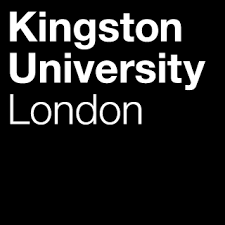Applied Research methods

16 Jan 2025 (Intake closed)
Apply by: 02 Jan 2025
New Session
16 Jan 2025 (On Campus), 30 Jan 2025 (Online), 12 Feb 2025 (On Campus), 26 Feb 2025 (Online), 12 Mar 2025 (On Campus)
Course overview
This module is a core module within the PGDip/MSc Healthcare Practice and PGDip/MSc Advanced Clinical Practice programmes. It will foster an in-depth understanding of the processes, stages and management of research, enable students to demonstrate critical appraisal and develop research skills applicable to both quantitative and qualitative approaches.
The module introduces the theories of research and provides flexible opportunities for students to apply and synthesise newly developed knowledge. It allows the students to practically follow the early stages of research by developing a research proposal, the design and corresponding methodologies for research projects as well as the late stages of research by analysing, discussing, interpreting and presenting data provided by the module leader(s). Emphasis will be placed on ethical principles, which students will discuss and apply in their research proposal. The module will also enhance literacy skills, oral and written communication skills, numerical and data analysis skills, information technology (ICT) skills, and independent learning skills.
Competence in research will enhance the healthcare professionals’ ability to develop and implement research projects, appraise projects, evaluate reported findings, effectively communicate information, collaborate with other professionals and work in, or manage, a multidisciplinary team.
Aims
The module will provide students with an in-depth knowledge and critical understanding of the value of research and equip them to independently undertake research and critically evaluate published research.
What and how you will learn on this module
How you will learn:
This module is delivered using a blended learning approach which integrates a variety of on-campus and online activities, supported by Canvas, the University’s virtual learning environment. A complementary range of activities are employed to engage you in the critical exploration of key topic areas, and the completion of formative tasks during the module also helps to keep you on track with the learning and gain feedback on your understanding of the content. A sense of community is developed and maintained with frequent opportunities for peer learning, enabling you to share your practice experiences and to learn from each other.
Academic writing and critical thinking skills are developed through ‘The Critical Thinking Skills Toolkit’ and other academic practice activities embedded within the module, that have been designed to nurture the skills needed to facilitate you to become a thoughtful, objective and reasoned thinker. This will help you tackle the assignment(s) confidently, understand marking criteria, use evidence, take a reasoned approach, make structured arguments and engage with other points of view.
What you will learn:
• Research proposal development
• Research paradigms and theories
• Overview of the research process (the stages) / project management
• Reviewing and critically analysing the relevant literature and identifying gaps in human knowledge
• Phrasing questions, general aims and specific objectives
• Overview of quantitative, qualitative and mixed-methods research/evaluation methods with strengths and limitations
• Overview of quantitative and qualitative data collection and analysis
• Measurement issues: sampling strategies, measurement scales and variables
• The concepts of validity, reliability, generalisability, transferability, credibility, trustworthiness
• Selection of appropriate topic, methodology and methods
• Legal, governance and ethical considerations in research and evaluation
• Consideration of PPI/stakeholder engagement.
Course length: 5 Teaching Days
Accredited by




Learning Outcomes
Critically appraise a body of literature, identifying gaps in the evidence base and identify the characteristics of a rigorous and ethical project.
Develop realistic, ethical and appropriate aims, objectives, and research/evaluation questions for a prospective project.
Identify different study designs/approaches, evaluate their methodological strengths and limitations, and select the most appropriate design/approach for a project.
Develop a realistic and appropriate project proposal (which may be implemented in the Capstone Project module), including aims and objectives, research/evaluation questions, methods, PPI or stakeholder involvement, data analysis plan, ethical considerations and a timeline.

Course details
Course leader
Lihua Wu
Administrator
Course delivery
Blended Learning. On-Campus sessions subject to change. If government advice changes, we may need to update our plans. If we do so, we will update this information, and will keep current students and offer holders informed by email.
Downloads
Prerequisites
Programme entry requirements
Funding
£1,156.00

Make an enquiry
Make an enquiry
